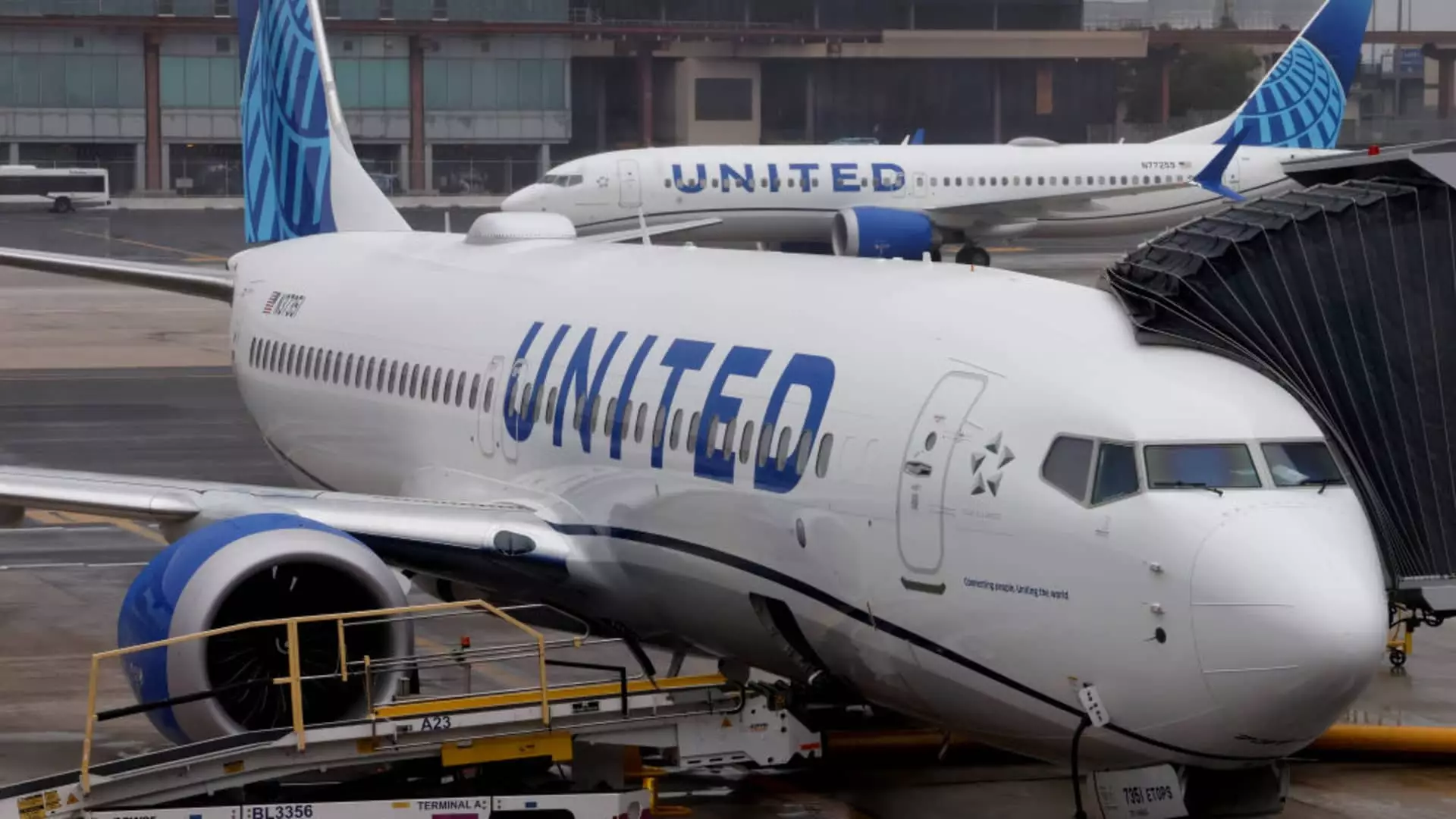United Airlines recently reported first-quarter adjusted earnings of 91 cents per share, a notable jump that left analysts expecting a lackluster performance, with projections set at 76 cents per share. The airline’s stock price soaring by nearly 7% initially paints a rosy picture for shareholders, yet a deeper dive unveils a more turbulent panorama. While the earnings beat is commendable, United’s revenue of $13.21 billion fell short of the anticipated $13.26 billion—a clear indication that not everything is as golden as some would proclaim. In an era where every cent counts, falling short of revenue expectations speaks volumes about the operational challenges lurking below the surface.
A Ripple Effect in the Airline Sector
The pronounced gain in United Airlines has hinted at a psychological ripple across the sector, affecting long-standing competitors such as Delta Air Lines and Southwest Airlines, whose shares also saw gains of 4% and nearly 2%, respectively. However, to regard these developments as a sign of a booming airline industry is deceptively optimistic. The reality is that airlines are in a constant state of flux, grappling not only with fluctuating fuel prices but also with inconsistent passenger demand. The brief uptick in stock prices reflects investor sentiment rather than actionable business improvements, and the potentially destabilizing effects of rising operational costs cannot be ignored.
The Troubling Outlook for Interactive Brokers and Others
Meanwhile, Interactive Brokers faced a bitter reality as their shares dipped by 5%. Reporting earnings of $1.88 per share fell short of expectations, despite other metrics appearing on point. While announcing a four-for-one stock split and some modest increase in dividends might serve as short-term appeasements, the underlying factors driving their earnings into the ground present a more formidable issue. When the profit margins of companies reliant on trading are squeezed, the ramifications can echo throughout the market, affecting investor confidence, leading to a greater industry downturn.
J.B. Hunt and Omnicom: Navigating a Tough Market
In the transportation sector, J.B. Hunt’s 6% fall after reporting earnings underscores the challenges facing not just airlines, but also logistics giants. Even with a top and bottom line beat for the quarter, contracting revenue year-over-year is a chilling reminder that consolidating gains can be incredibly challenging in uncertain economic waters. Omnicom also demonstrated this trend, shedding more than 2% despite exceeding expectations, highlighting the fragility of market perceptions. Companies are fighting uphill battles against a backdrop of economic uncertainty and changing consumer behaviors.
Nvidia’s Regulation-Induced Gloom
The tech sphere is not immune either. Nvidia’s shares plummeting by 5% following a $5.5 billion charge related to government restrictions on exporting technology to China is particularly telling. The regulatory landscape is shifting rapidly, and companies must adapt or risk facing dire consequences. This scenario underscores the need for innovation within compliance, as the costs of regulatory adherence could threaten earnings stability.
As the financial fabric continues to warp, investors must remain vigilant, parsing through market noise to genuinely understand where these companies stand in a shifting economic climate. In an era of increasing volatility, those relying solely on headline numbers may find themselves in precarious waters.

